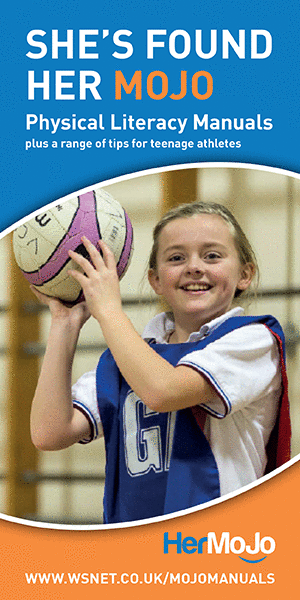


@Surreysportpark @Sarah_Winckless @RyanDemSA @BADMlNTONEnglnd @Bevi1Pepin
@jo_sports @VGAGymnastics @SheffieldHS @Sport_Beautiful @UoWWISE
SLIDES - If you would like an edited version of the conference slides please email jo.c@wsnet.co.uk . These will be provided free to organisations supporting the worldwide work of WSNet - please follow @WSNet for future updates and R/T this page from the 'Tweet Button' below at the base of this page.
#SHECoaches - WSNet's next conference will be in May 2016 - about 'women in coaching' - we are currently drawing up a steering group - if you are interested in joining this group or speaking at the event please contact paul.r@wsnet.co.uk
#LIKEaGIRL - understanding Physical Literacy for young girls.
The conference considered that if we are serious about the wellbeing and achievement of all women and girls in later life, then we must create a culture where girls’ active participation in PE and sport is the norm. An understanding of why this disconnect occurs and how it can be avoided is essential - not just for girls in sport - but for girls throughout life.
The conference was chaired by Karen Rothery, CEO Surrey Sports Park. Karen Rothery took over the role at Surrey Sports Park early September, following on from seven very successful years as CEO at British Universities College Sport (BUCS) and before that she was Commercial Director at England Netball.
The keynote was delivered by Sarah Winckless, World Champion and Olympic GB rower. Sarah emphasised that beliefs can stop you or start you, so key to encouraging girls to become more active is to work on those beliefs. She also stated that we should probably get away from using the term 'sport' as is puts off many girls and should use the word 'physical activity' instead. It is then about finding an activity that is right for each girl. The importance of girls having role models, who they can associate with cannot be emphasised strongly enough.
Sarah was subsequently interviewed on UK BBC Radio4 about the conference - watch her interview here
Ryan Demaine, Director of Sport, Headington School Oxford provided an overview of core coaching principles. He highlighted the need for developing good movement patterns, good core stability and a strength programme and stated that “I’m in a job to keep girls participating in sport for years to come”. He was also keen to emphasise that it’s not one size fits all and that we tailor activity for the individual, then we can challenge girls as much as boys Another key point in Ryan's presentation was that transferrable skills are very important to enable girls to have the confidence to engage in different sports.
Jenna Smith, Project Manager, Badminton England, told the story of how SmashUp! has brought Badminton to a new audience of over 40,000 young people and has been particularly successful in engaging girls. She began with describing how young girls did not perceive badminton as being a sport for them: As a 13-year old girl put it: 'It’s a boring, dull activity that old people do – it’s not for my age group.' So, how could Badminton England break down the barriers – what would attract young girls to badminton? The answers: Mates, music, badminton challenges, high energy, fun, sociable, interactive, make up your own rules. The sessions were facilitated and not coached and there was a high degree of autonomy and no competition.
They were delivered at
• 1200 Venues
• 40’000 young people
• 56% Girls
They put strong emphasis on the activators being welcoming and demonstrate the ability to be engaging with young people, motivational and sociable and interactive and deliver sessions that are high energy and fun. SmashUP! was really exercise without knowing it – simple and fun challenges to build basic skills.
Shannon Pepin Bevione, Lecturer in Physical / Primary Education, Plymouth University, proposed that we should move towards a more holistic approach to primary physical education where stability is at the core of physical activity. She also proposed that physical literacy as defined by Whitehead as competence, confidence and motivation is the way forward 68% of girls aged 10-11 took part in at least 3 hrs of PE and sport each week at the end of primary school. This decreases to just 15% by the end of Secondary school at age 18 girls lag behind boys in the development of manipulative Fundamental Movement Skills FMS by age of 7 – what shall we do about this?
• Quality of teaching?
• Primary specialists in P.E.?
• A variety of curriculum activities?
• Opportunities?
She concluded that we need to go beyond traditional sports/games – find a way of being active.
Jo Herbertson, Women and Girls Cricket Development Coach at Cheshire Cricket Board started with stating that we need leaders/coaches with a passion for sport. She emphasised that we must create the right environment (venue, coaches, volunteers, unpressured, safe). Jo also highlighted that "Fun is the buzz word but to get them to keep coming back girls love to learn/ improve and socialise", but (*not always in that order!) She was also keen on selling the sport doesn’t always work, instead sell the benefit of that particular session (e.g. = cricket tea/cake!). You should differentiate your offer based on age, ability and individuality. This also means that you should not be afraid to bend the rules. Her final key point that we should use local and social media to promote activity.
Melissa Anderson of Valleys Gymnastics Academy told the story of how two gymnastics clubs in the Valleys merged in 2011 with a combined membership of 100 and large amounts of gymnastics equipment. Operating as a social enterprise it received an initial development grant of £13,000. Four years later Valleys Gymnastics is approaching 2,000 members with a turnover exceeding £300,000 without receiving a further penny in grant funding. Melissa outlined how this happened
• Know your market
• Think to provide activities that girls want and which will keep them engaged (cheerleading, parkour, free running)
• Deliver a product through a workforce
• Working in partnership (Us Girls, StreetGames, , local schools, etc.)
• Use smart timetabling to target inactive female population ()
• Provide an alternative offer to secure retention
• Use social media to engage
Liz Rodgers, Director of Sport, Sheffield High School highlighted that key differences in girls turning away from sport or coming back for more are being listened to and feeling good about themselves. She then said that process has to come before product and asked: what does your marketing depict? She also stated that we need to strike the right balance between competitive sport and fitness and we need to vary the curriculum to do so. So your offering has to be varied, innovative and functional and reflect what the girls want. You should structure activities to generate achievement and promote self-esteem and develop engaging and current curriculum content. Physical activity and exercise should also be outward bound, with skiing trips, charity walks, etc.. Liz then emphasised the importance of communication and feedback; as she put it: “Corridor comments count".
Danielle Sellwood, Co-founder of Sportsister and Visual Campaign Director Women’s Sports Trust, spoke on how social and digital media impacts on women and girl’s sport, body image, fear of judgement and how this impacts engagement. She started by saying that women are born with a body type and that the media encourages conformity to an ‘athletic ideal’. Imagery portrayed by the media is more often than not, is unreflective of the female population. Her point then was that “we can’t fight what is out there already but we can offer an alternative” and “you can’t be what you can’t see”. We must celebrate diversity and all body types. She then spoke of the Women's Sports Trust Sport is Beautiful campaign which celebrates, creates and promotes the very best women’s sports photography and film. It focuses on images that showcase the athletes’ strength, skill, courage and commitment.
Vanessa Jones, Head of the WISE Task Force, University of Worcester, summarised the presentations and defined strategies/actions that can be used in schools and clubs:
• Anecdotal accounts are important BUT empirical evidence is needed to underpin our interventions and initiatives
• Females are individuals too. One person’s barrier is another’s opportunity. Let’s be careful with the language we use
• Women don’t have a genetic pre-disposition to throw or run in a certain way. FMS acquisition is key to advanced and complex movements – through instruction and opportunity to practice
• P.E. has to be appropriate, relevant and delivered by well-trained teachers offering something for everyone – different motivations, abilities and preferences







